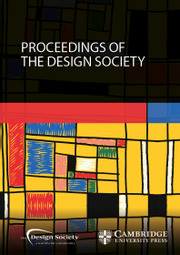No CrossRef data available.
Article contents
A DRAWING EDUCATION PROGRAMME FOCUSING ON ENHANCING ABSTRACTION ABILITY
Published online by Cambridge University Press: 19 June 2023
Abstract
This study considers the 'three sub-abilities' that constitute the abstraction ability and focuses on drawing as an education for acquiring them. Focusing on the similarity between the process of drawing and the semiotic triangle, elucidating their relationship with the sub-abilities that constitute the abstraction ability, it devises a drawing education programme that focuses on 'observing' rather than 'drawing'. The drawing education programme formulated is implemented on 177 students, and the result is determined using tests that enable objective evaluation to prove the effectiveness of the program in helping students acquire the 'three sub-abilities' that constitute the abstraction ability.
The educational programme proposed in this research, which focuses on the universality of the effects of learning drawing, as well as the quantitative criteria for evaluating it, will contribute to familiarize practical education in the field of art to the general public.
- Type
- Article
- Information
- Creative Commons
- This is an Open Access article, distributed under the terms of the Creative Commons Attribution-NonCommercial-NoDerivatives licence (http://creativecommons.org/licenses/by-nc-nd/4.0/), which permits non-commercial re-use, distribution, and reproduction in any medium, provided the original work is unaltered and is properly cited. The written permission of Cambridge University Press must be obtained for commercial re-use or in order to create a derivative work.
- Copyright
- The Author(s), 2023. Published by Cambridge University Press


